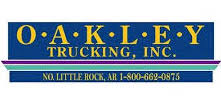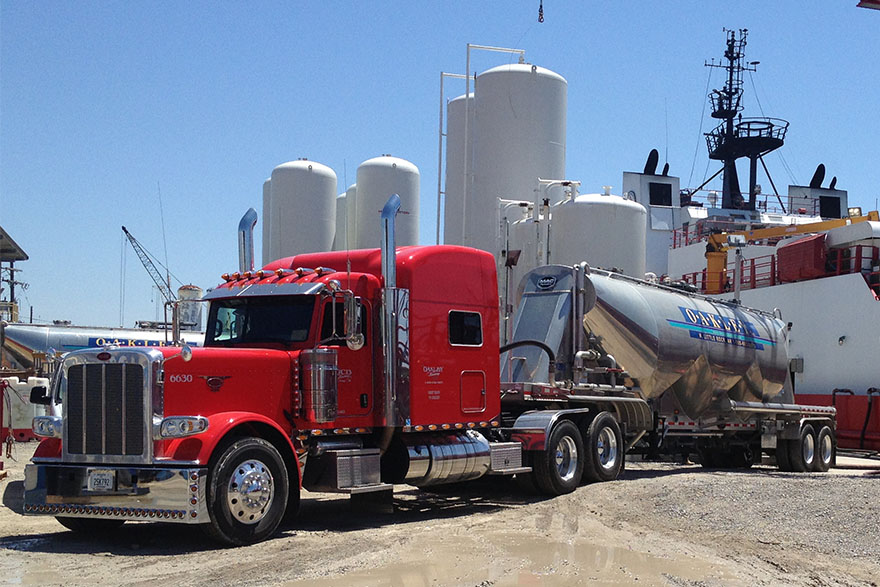The dry bulk commodities the Arkansas-based carrier handles keep the business as ‘recession proof’ as you can get
Â
By AL MUSKEWITZ
Â
The question comes up in just about every interview and orientation session Corey Huey and Jeremy Kellett conduct for Oakley Trucking.

After telling prospective and new drivers all the things Oakley can do to make their owner-operator experience easy the two recruiters get asked when is their slow time that all trucking companies invariably go through.
Well, they’re told, there really isn’t any.
While slowdowns are inevitable in some sectors of the trucking industry relative to supplier productivity, weather issues and seasonal freight conditions, the variety of dry bulk commodities Oakley hauls throughout the Lower 48 and Canada – and the fact it pays per mile (full or empty) not per load – keeps the more than 850 owner-operators in its system moving all year long.
Fertilizer and grain may be strongest at certain times of the year, but there’s scrap iron, petroleum coke, alloys, pet feed, dirt for major-league stadiums and other products to fill in the gaps. There’s sand and salt to airports and road departments to combat the elements in the winter. Roofing granules are a major piece of Oakley’s commodity portfolio and they’re in high demand now in the wake of Hurricane Dorian as shingle manufacturers race to meet reconstruction demands.
“We’re as recession proof as you can get and a big part of that is just because of the type freight we haul,†said Huey, an Oakley recruiter for more than 10 years. “Dry bulk is a broad definition. A lot of the reason we are busy all the time is there’s always something to haul.
“If we lost five or six commodities because it’s seasonal stuff it doesn’t really affect the driver because there’s other things going on to fill those voids. There’s always something going on. We’re blessed to have the freight and the great customers that we’ve had for well beyond the time I got here.â€
That’s peace of mind. The nation’s economy has been booming for months so there’s plenty of freight available to keep all segments of the industry busy, but what happens when the cycle turns? More than 60 percent of Americans in a recent national poll believe a recession is likely to occur in 2020. Still, Oakley is well positioned for any economic downturn.
Since January it has added 100 trucks to its fleet of end dumps, pneumatic tanks and hopper bottoms and is in the process of building a new, larger office at its North Little Rock, Ark., headquarters to accommodate the growth. It currently has an all-time high 857 owner-operators in its trucking fleet and orientation is pre-booked through the end of the year, which could mean as many as another 90 drivers on its rolls. In addition to North Little Rock, Oakley has terminals in Inola, Okla.; and Reserve, La.
“We haul a lot of different products and they’re all raw materials, so I feel like we’re on the front line … to know if there’s going to be a recession or if it’s going to slow down,†said Kellett, Oakley’s director of recruiting. “But we have made a commitment … to keep them busy through any tough time because we know the good times are coming, and when they come then it’s going to be really good. When freight slows down or takes a hit, we’re committed to keeping our owner operators busy and making money.â€
Don’t just take it from management.
“If somebody’s looking for a job where they’re running all the time and they’re not sitting, Oakley is the place to be,†said Douglas Lee, an Oakley end dump driver from Lancaster, S.C. “For the first time in my trucking career I’ve actually had to holler uncle a time or two.â€
Nick Noel, a driver from Olive Branch, Miss., puts it in even simpler terms.
“We don’t sit,†he said.
Al Muskewitz is the editor for Wright Media.


Leave a Reply
Your email address will not be published. Required fields are marked *